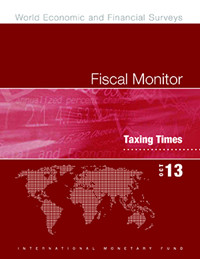Stevis, M., (2013), “Statistics Show Bailout Countries’ Slide Away from EU Targets”, The Wall Street Journal, 29 October. Euro-zone countries in bailout programs have slipped away from the European Union’s targets for economic and social performance, a number of detailed statistical indicators show. The backtracking was made evident Tuesday when Eurostat, the EU statistics agency, presented aggregated data on a set of goals that form Europe’s 2020 Strategy. The program …Read More
Entrepreneurship and Investment Opportunities in Greece Today
Endeavor, (2013), Entrepreneurship and Investment Opportunities in Greece Today, Athens: Endeavor Greece, The report on Entrepreneurship and Investment Opportunities in Greece Today was issued on the occasion of Endeavor Greece first anniversary. The report presents facts on new business activity and defines the extent to which Greece’s growth model has shifted since crisis started. It leverages research and interviews with our network’s experts to validate specific areas of opportunity. It …Read More
A fiscal perspective on EU sovereign credit ratings
Wickens, M. and Polito, V., (2013), “A fiscal perspective on EU sovereign credit ratings: Did the credit-rating agencies get them right?”, VoxEU, 30 October. A good credit rating has become a key fiscal objective, even if it requires austerity when unemployment is high. Recent experience has raised doubts about the sovereign ratings provided by the credit-rating agencies. This column suggests a new way to measure credit ratings based on a …Read More
The ‘Official’ Cost Of Austerity
Wren-Lewis, S., (2013), “The ‘Official’ Cost Of Austerity”, Social Europe Journal, 29 October. Well, not quite, but probably as close as we will ever get. In a new paper, Jan in‘t Veld uses the European Commission’s QUEST model to estimate the impact of fiscal consolidation in the Eurozone (EZ) from 2011 to 2013. The numbers in the table below include spillover effects from other EZ country fiscal consolidations, so they …Read More
Massacre memories: German car sales and the EZ Crisis in Greece
Fouka, V. and Voth, H.J., (2013), “Massacre memories: German car sales and the EZ Crisis in Greece”, VoxEU, 23 October. The EZ crisis increased north-south conflicts between bailout providers and recipients – especially between Germany and Greece. This column shows evidence that political conflict directly translated into losses of market share for German car producers in Greece – especially in areas where German armed forces committed massacres during World War …Read More
A Strategy for Southern Europe
LSE, (2013), A Strategy for Southern Europe, London: LSE !deas. Over the last five years Southern Europe has experienced widespread economic, political and social upheaval of almost existential proportion. Greece, Italy, Spain and Portugal, stricken by the Eurozone crisis and the aftershocks of the Arab Spring, face uncertain futures. This report examines the challenges confronting Southern Europe and seeks to explore the potential benefits the countries of the region could …Read More
In Praise of Debt Ceilings
Sinn, H.W., (2013), “In Praise of Debt Ceilings”, Project Syndicate, 17 October. The wrangling about raising the US government’s borrowing limit – now thankfully over, at least for a few months – underscores the hazards posed by excessive state indebtedness. Governments nowadays are essentially running gigantic redistribution machines that steer funds from taxpayers to transfer recipients and other beneficiaries of public expenditure. The latter permanently ask for more, while the …Read More
On graduation from fiscal procyclicality
Frankel, J., Vegh, C. and Vuletin, G., (2013), “On graduation from fiscal procyclicality”, Journal of Development Economics, 100(1):32-47. In the past, industrial countries have tended to pursue countercyclical or, at worst, acyclical fiscal policy. In sharp contrast, emerging and developing countries have followed procyclical fiscal policy, thus exacerbating the underlying business cycle. We show that, over the last decade, about a third of the developing world has been able to …Read More
The Periphery Six
Wright, T., (2013), “The Periphery Six”, Project Syndicate, 14 October. Cyprus, Greece, Ireland, Italy, Portugal, and Spain share a problem. With massive debt, no control over monetary policy, and no leeway for fiscal stimulus, they appear headed for a lost decade of high unemployment and low GDP growth. Such a path would drain the political establishment of legitimacy and prevent a real recovery in Europe. With structural reforms having proved …Read More
Fiscal Monitor 2013: Taxing Times
IMF, (2013), Fiscal Monitor 2013: Taxing Times, Washington D.C.: International Monetary Fund. Persistently high debt ratios in advanced economies and emerging fragilities in the developing world cast clouds on the global fiscal landscape. In advanced economies, with narrowing budget deficits, the average public debt ratio is expected to stabilize in 2013–14—but it will be at a historic peak. At the same time, fiscal vulnerabilities are on the rise in emerging …Read More






